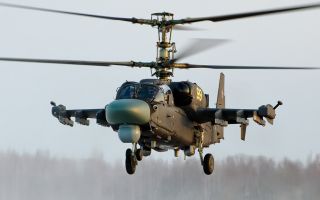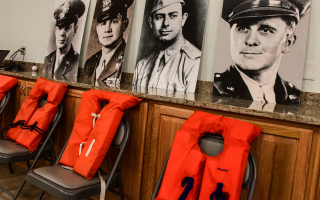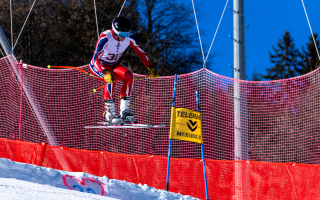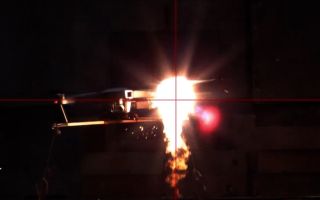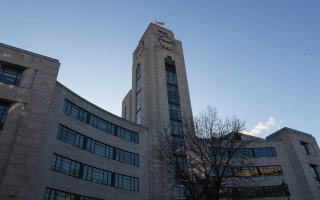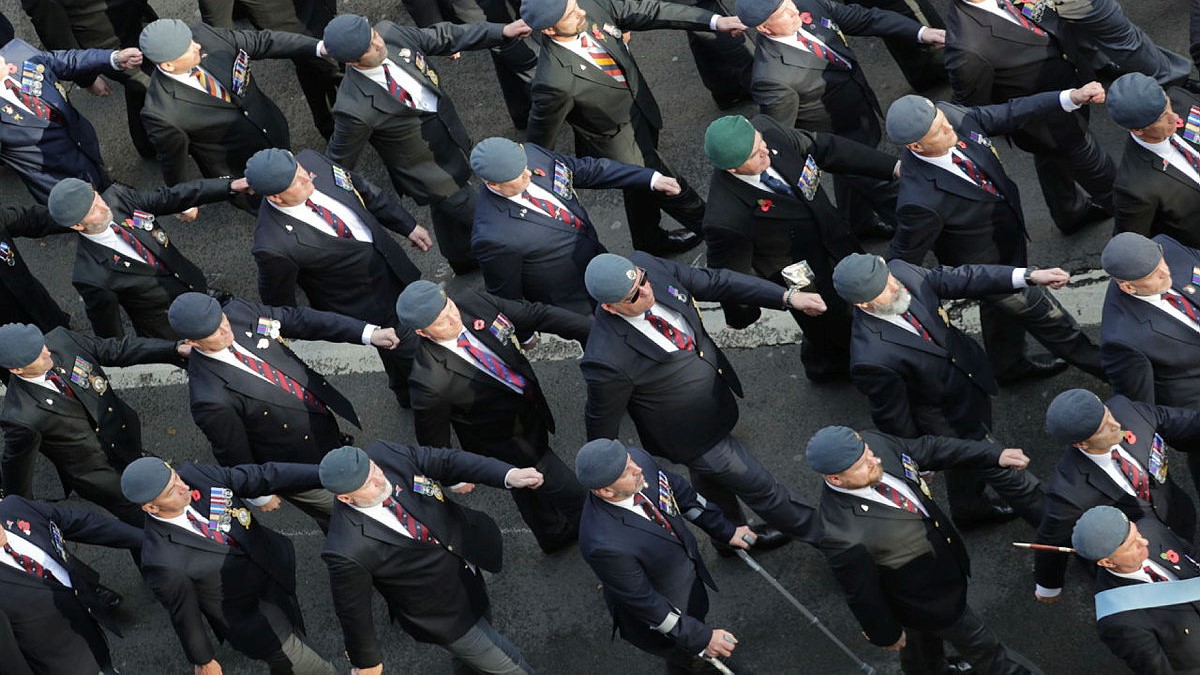
Regimental associations – do they need to change? You have your say

Veterans have responded to calls for more of the younger generation of former Armed Forces personnel to sign up to their local military association.
Former members of the military have turned to social media to give their reasons for not joining their local branch and older veterans and current members of various regimental or service associations have also responded.
It comes after the Garrison Sergeant Major of London District warned younger veterans to use their regimental associations or run the risk of losing them altogether.
- The Royal British Legion at 100: How the RBL helped disabled veterans back to work after WWI
- Use or lose your regimental associations, younger veterans warned
- Deadline extended for jobs scheme fast-tracking forces veterans into the Prison Service
Warrant Officer Class 1 Andrew 'Vern' Stokes, who earlier this year oversaw the delivery of the King's coronation, made the plea as some veterans told Forces News regimental associations were too formal, and that sometimes the older veteran community could be difficult to engage with.
Forces News published a poll on X, formerly Twitter, asking "Do regimental associations need to modernise to appeal to younger veterans?"
Out of the 201 votes which were cast, 78.1% of respondents said 'yes', 13.4% said they were not sure and 8.5% said 'no'.
Responding to a Forces News Facebook post asking: "Could regimental associations be lost altogether without the participation of younger veterans?", many of the audience gave their reasons for not joining.
Ben Mead wrote: "From what I have experienced, the older veterans, aka Blazer Brigade, they don't seem to welcome younger veterans joining the regimental association or RBL, as these running local branches think they are still of importance.
"Or, dare I say this, it's more jealous because our generation of veterans has constantly been deployed around the world for the past 20+ years... And feel threatened by us? Personally, we are all the same, aka veterans, and should look out for each other."
Another member responded to the above post from Ben saying: "I think you may have got the Blazer brigade wrong. Yes, some branches insist on Blazers but most are more relaxed about dress code as the branches need younger members.
"Yes, younger forces have seen more than most but jealous, certainly not. I would love to see young men in the branch, especially with their racks of medals. I certainly do not feel threatened.
"About feeling not welcome I felt the same when I joined my first branch of the RBL but that was back in the early 70s – maybe if I had been in there every night it might have been different."
Ronald Taylor wrote: "One of the problems is the fact that these young veterans usually have a job to continue going to until they retire, I know I did and it was quite difficult to get into associations when holding down a full-time job.
"When I retired a different story, I found so many of my old mates and many new ones. I have just moved so will have to look around for an association in the area."
Samuel T Reddy said: "Most comments here are spot on. As a Commonwealth veteran, I once attended a local RBL event; very clicky people and can be very uncomfortable. So, I started my own Commonwealth veterans group, we have people from over 56 countries, from Nepal to Fiji, Nigeria to Jamaica, and we also include our spouses and children – no dress code or regimental agenda apart from a few cruise trips and mission works.
"I think understanding the generation gap and cultural awareness are essential for Commonwealth veterans. The 2021 census has 48k living in the UK."
Dominic O'Sullivan posted: "Individual association identity may be replaced by a wider veteran community identity? They are not lost as such but as with the experience of my own association, the connection is often chaperoned by an older demographic which struggles to engage with those still serving or recent leavers.
"The format of many reunions/gatherings is traditional and maybe out of step to younger veterans? Tough nut to crack."
Roy Robinson said: "I would attend the REME gatherings in Scotland annual dances etc with my wife, but as soon as dress code is mentioned – eg blazer with badge corp tie, or smart tartan – no way, and I'm 75."
In 2021, the national census found that 1.85 million people in England and Wales were classed as veterans.
Fifty-three per cent were over 65, meaning almost half of all veterans are of working age.

